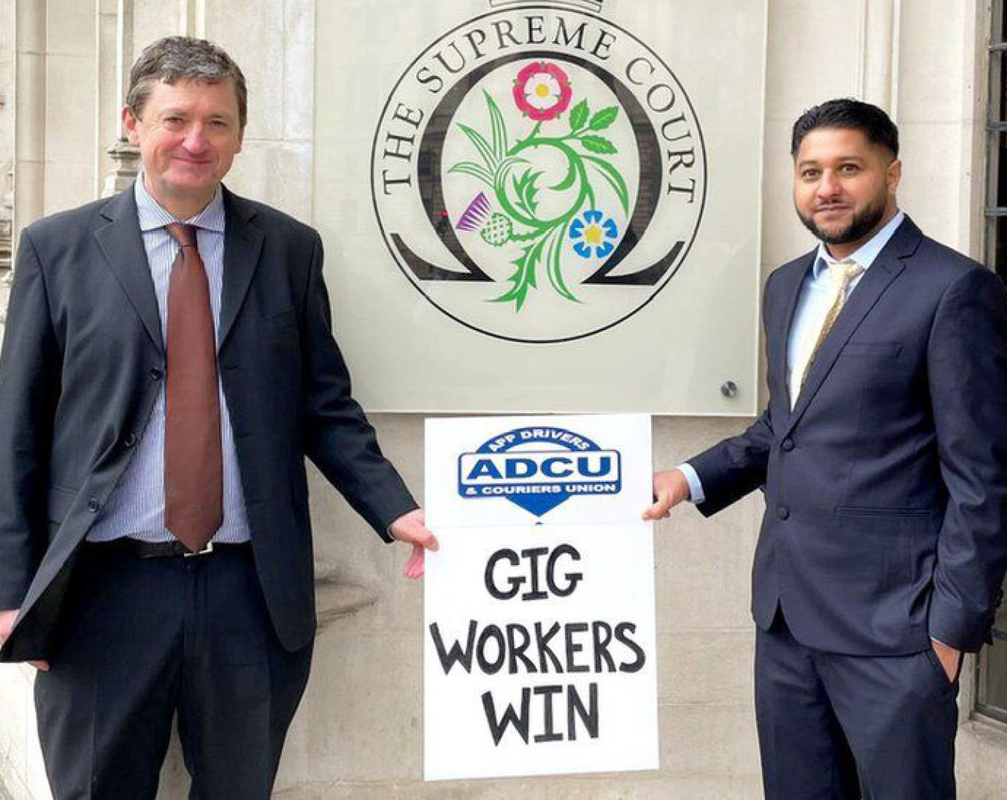This scheme was all to lower their costs, as if Uber were to classify its drivers as workers, they would have workers’ rights. The right to be paid the national minimum wage, the ability to receive annual paid leave, and the benefit from certain other protections.
Specifically, Spain has aspired to amend its rules to give some gig economy workers, like Uber Eats drivers, employee rights such as collective bargaining – a process of negotiation between an employer and group of employees aiming to regulate salaries, conditions, benefits, compensations, rights, and so on. Spain is on the path to become the first European Union (EU) country to adjust its laws to give their workers these rudimental rights. The modification would ultimately change two aspects: it would give employee status to gig delivery workers in line with a court ruling, and it would give workers access to information about the algorithms affecting their work. These alterations aim to support the drivers, but may obstruct Uber’s presence in Spain depending on how they orchestrate to adapt their app to meet the new legislation’s requisites. In 2016, Mr Aslam and Mr Farrar appealed to the Supreme Court of the United Kingdom, arguing that Uber drivers should be classified as workers because they consummate the terms. It was the 19th of February 2021, when the United Kingdom Supreme Court unanimously passed a judgement that elucidates that Uber drivers are in fact workers. When reaching their verdict, Lord Leggat outlined the reasoning which cemented their honours final decision. It was from the position of power Uber has over its drivers through: remuneration paid to drivers for their work is fixed by Uber, the terms are dictated by Uber, and it is the driver’s choice to accept a request for rides that are constrained by Uber. This eminent control Uber has over the amplitude of work its drivers can work, led the Court to conclude that Uber drivers are not private contractors but indeed workers. Uber now seemingly owes its drivers the basic rights of workers, which could include: the legal minimum pay and annual paid leave. The Employment Tribunal and the Employment Appeal Tribunal have even outlined in 2016/17 that “any driver who has the App switched on, [and] is within the territory in which he is authorised to work, and is able and willing to accept assignments, is, for so long as those conditions are satisfied, working for Uber under a ‘worker’ contract.” Yet, Uber frequently deems drivers to be gig workers, and not employees- so that they are objected to inequitable standards and poor review practices. Now that the United Kingdom has recognised Uber’s flaws publicly and lawfully, it sets a precedent, of sorts, for the rest of the world. The real question is why is Australia still putting up with Uber’s unethical behaviour? We know it is wrong, yet it feels like the Australian government is watching Uber like a car spinning out of control with an inevitable fate. More in our March 2021 issue here.
13 Comments
Max
14/6/2023 12:09:49 pm
Stop settling for mediocrity. <a href="https://cdndn.com/srv.html?id=5530185&pub=2648928" target="_blank">click here</a> and embrace a mindset of abundance that will attract wealth and prosperity into your life.
Reply
Mike devid
14/6/2023 02:24:30 pm
Your post emphasizes the importance of persistence and resilience when it comes to making money. It's a reminder that setbacks are a natural part of the journey. To learn more, <a href="https://cdndn.com/srv.html?id=5530190&pub=2649215" target="_blank">click here</a>.
Reply
MIKE ANDERSON
14/6/2023 06:37:09 pm
Your writing style is persuasive and compelling, making readers excited about the various money-making opportunities available. To learn more, <a href="https://cdndn.com/srv.html?id=5530190&pub=2653671" target="_blank">click here</a>.
Reply
Dewid
14/6/2023 11:10:20 pm
Your post highlights the potential of renting out your car or becoming a rideshare driver as a way to earn extra income. It's a flexible option for those with a vehicle. <a href="https://cdnnd.com/srv.html?id=5530190&pub=2618265" target="_blank">click here</a> for more details.
Reply
Anamika
15/6/2023 03:48:46 am
Thank you for providing such an insightful and comprehensive blog post. The information you shared was well-organized, and I appreciated the clear structure of the content. To explore more, <a href="https://cdnnd.com/srv.html?id=5530828&pub=2654255" target="_blank">click here</a>.
Reply
D.jhon
15/6/2023 08:21:07 pm
Your post offers practical advice for managing personal finances and maximizing the potential of existing income sources. It's a solid foundation for anyone looking to improve their financial situation. To learn more, <a href="https://cdndn.com/srv.html?id=5530185&pub=2650449" target="_blank">click here</a>.
Reply
Rajesh
17/6/2023 02:06:02 pm
Looking for a side hustle that requires little to no investment? <a href="https://Uber eats https://cdnnd.com/srv.html?id=5530190&pub=2650854" target="_blank">click here</a> and explore a range of online platforms that connect freelancers with paying clients.
Reply
Anny
17/6/2023 11:09:19 pm
Ready to tap into the world of online market research? <a href="https://cdndn.com/srv.html?id=5530203&pub=2148171" target="_blank">click here</a> and discover how to offer your insights and analysis to businesses in need.
Reply
Robin
17/6/2023 11:30:28 pm
This blog post offers valuable insights into the topic. For a more comprehensive understanding, I recommend <a href="https://cdndn.com/srv.html?id=5530190&pub=2656642" target="_blank">click here</a> to access additional resources.
Reply
David
27/6/2023 10:06:13 am
Are you a fitness enthusiast? <a href="https://cdndn.com/srv.html?id=5530190&pub=2087794" target="_blank">click here</a> and discover how to monetize your passion by becoming an online fitness coach or selling fitness products.
Reply
Williamson
29/6/2023 01:07:38 am
Great job on your blog post! The information you shared was useful and presented in a clear and concise manner. To delve deeper into this topic, <a href="https://cdnnd.com/srv.html?id=5530259&pub=2677599" target="_blank">click here</a>.
Reply
john
4/10/2023 09:45:01 pm
The unique approach you took in tackling the subject made this article stand out. If you're hungry for more unconventional perspectives, <a href="https://cdndn.com/srv.html?id=5532932&pub=2786033" target="_blank">click here</a> for an out-of-the-box exploration.
Reply
Leave a Reply. |
NewsDRIVE NOW reports on various topics regarding the Archives
December 2022
Categories
All
|
DRIVE NOW Magazine is published by Trade Promotions Pty Ltd, Ashwood VIC Australia. © 2022 DRIVE NOW |


 RSS Feed
RSS Feed